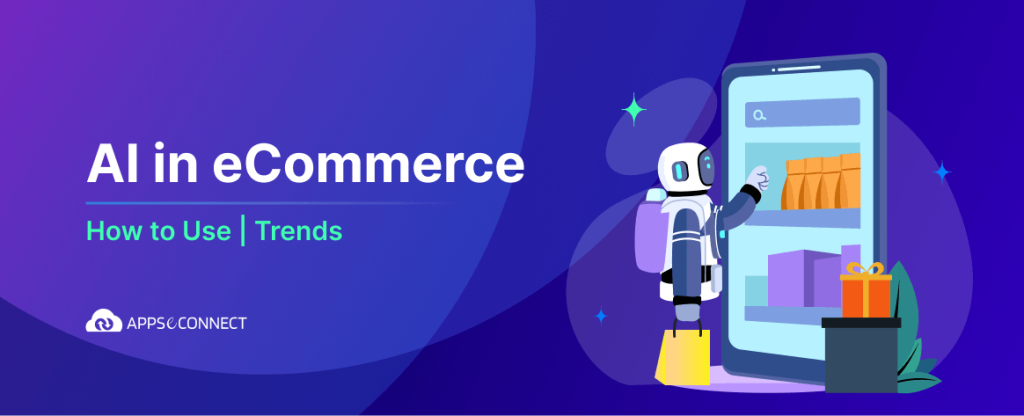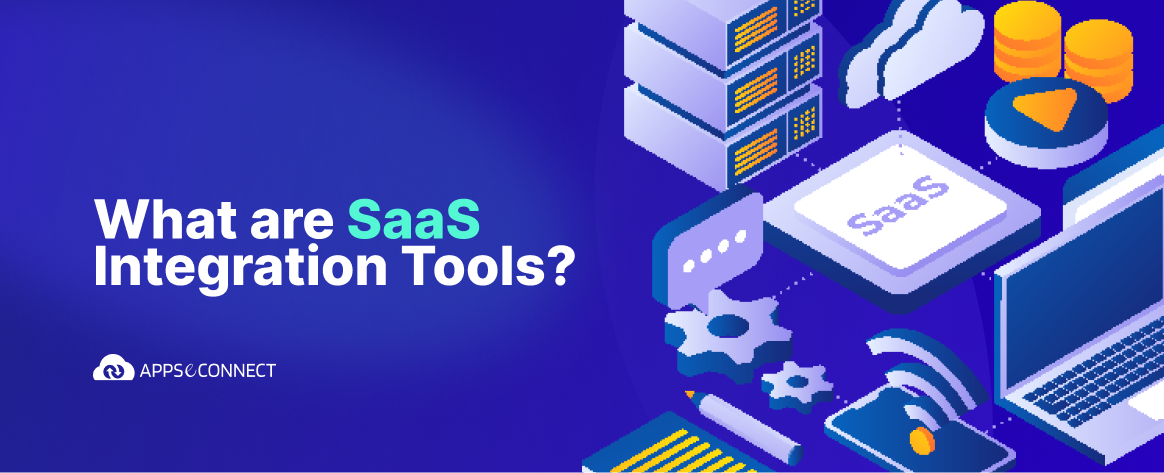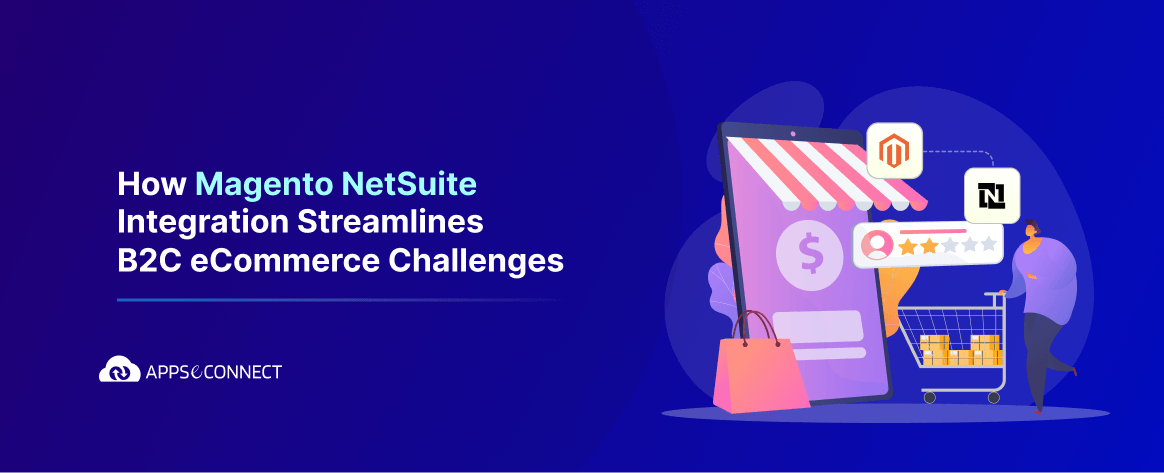The eCommerce industry is expanding at an unprecedented rate. From 2017 to 2024, global revenue from eCommerce sales has nearly tripled – from $2.3 trillion to $6.3 trillion. With this rapid expansion comes fierce competition.
How can businesses stay ahead? The answer lies in the strategic implementation of Artificial Intelligence.
For eCommerce, success hinges on customer experience, quick fulfillment, and strong customer support. Strategic use of AI in eCommerce can enhance all these areas and more. Let’s explore the key AI trends in eCommerce and how to implement them effectively.
How is AI helping in eCommerce?
AI technology has advanced quickly in the last few years. Many eCommerce businesses are already using AI in some way or another, but we’re zoning on the most significant use cases that will improve your bottom line – sales, revenue, and customer satisfaction.
Hyper-personalization
While “personalization” has been a buzzword in eCommerce, hyper-personalization takes it to the next level.

Traditional personalization uses historical data for broad recommendations. Hyper-personalization uses AI to analyze both historical and real-time data, creating a completely adaptive shopping experience.
Modern AI understands not just what customers buy, but how they shop. Consider selling winter jackets: Traditional personalization would simply recommend more jackets based on past purchases. Today’s AI identifies subtle patterns – customers favoring red items, late-night shopping habits, or converting better with free shipping offers. It then automatically reshapes their entire experience, from product displays to pricing to promotions, based on these insights.
Recent research indicates AI-powered hyper-personalization can:
Sales Automation
Speed is crucial in modern eCommerce. Behind every order lies complex operations: inventory management, shipping, payment processing, and customer communications. AI in eCommerce is transforming these backend operations through:
- Automated inventory tracking and management
- Intelligent order processing and fulfillment
- Automated customer communications across the buying journey
- Real-time system synchronization
According to HubSpot, sales professionals save more than 2 hours daily by automating manual admin tasks using AI.
AI Virtual Assistant
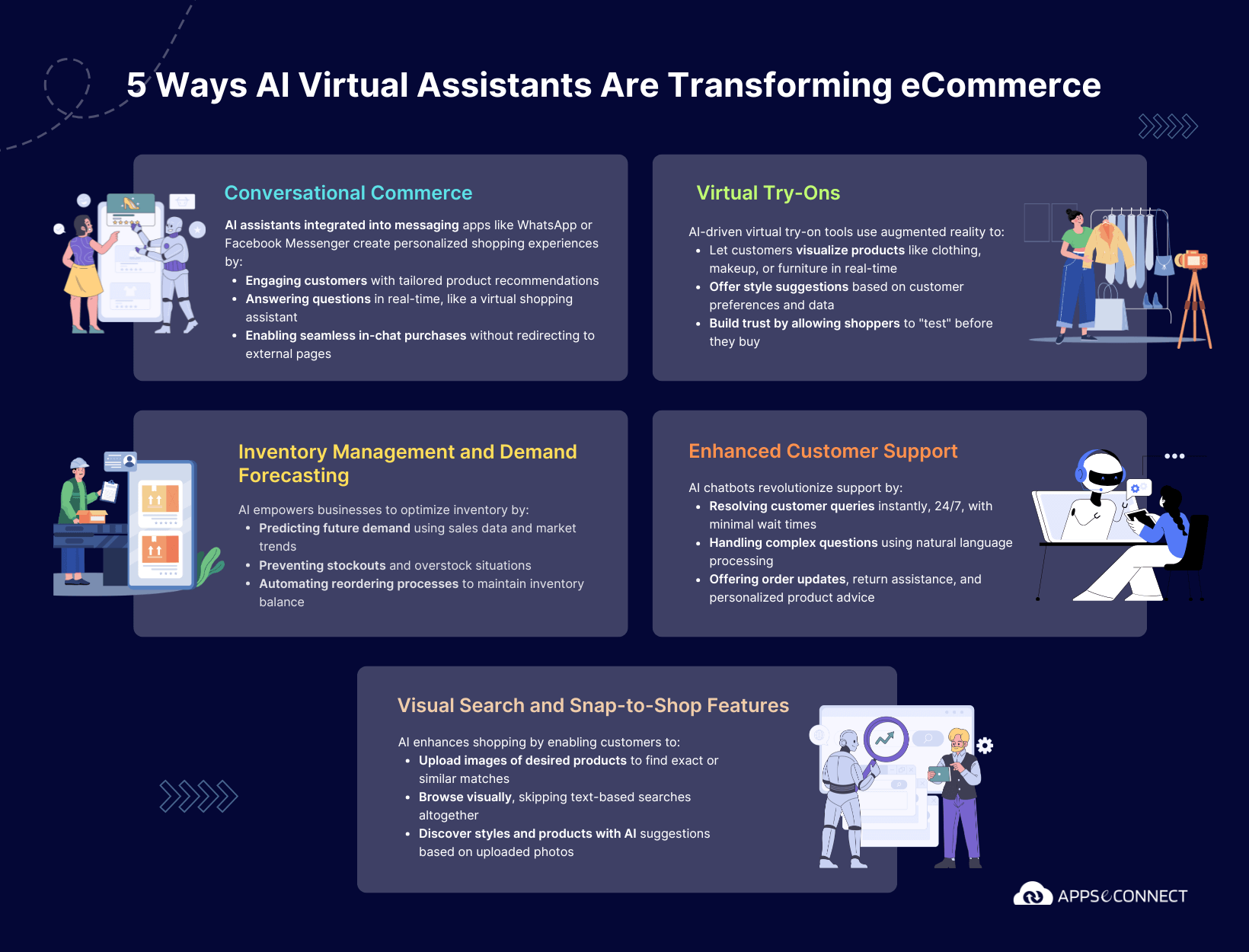
AI assistants have evolved from simple chatbots to sophisticated conversational partners. They can understand context and handle complex queries. This allows them to provide personalized product recommendations for better conversions. Modern-day virtual assistants are taking things a notch higher with new capabilities – predicting consumer trends, optimizing inventory management, and even assisting with targeted marketing campaigns
Research shows eCommerce websites using AI-powered chatbots see a 35% increase in customer engagement.
AI-powered eCommerce Integrations
In eCommerce, every transaction, click, and sale generates a tidal wave of data. But the challenge is not just about collecting data—it’s about making it flow. For eCommerce businesses, the real magic happens when their sales platforms speak fluently with their operational systems.
For example,
- Online orders on your webstore must be synced in the ERP, followed by inventory check/update and payment processing.
- During stockouts, the ERP system should inform the eCommerce store to adjust listings or halt sales until replenishment.
For such advanced data sync and automation, AI-powered integration platforms now offer:
- Natural language workflow creation
- Automated error detection and troubleshooting
- Generative AI for product listing automation
- Voice-based order processing
- Integrated fraud detection
- Order processing via messaging apps
Benefits and Challenges — Exploring Both Sides of AI in eCommerce
Integrating AI into your eCommerce operations will definitely give you many benefits, but you must equally be aware of some challenges that come along the way. Let’s analyze both aspects.
Benefits of Implementing AI
- Captures attention through hyper-personalized experiences that resonate with modern buyers’ short attention spans
- Improves accuracy and efficiency in manual tasks while freeing up human agents
- Provides 24/7 customer support through virtual assistants
- Transforms sales and marketing operations into an efficient automated engine
AI Integration Challenges in eCommerce
- Building Custom AI Models: Most eCommerce businesses lack resources for custom AI development, necessitating reliance on third-party solutions.
- Cost Considerations: Powerful AI solutions require investment. Businesses need a dedicated AI budget for meaningful implementation.
- Integration Complexity: Incorporating AI into existing systems requires careful planning and reliable middleware integration platforms.
How can eCommerce Businesses use AI? Strategic Implementation Guide
Knowing the top use cases of AI in eCommerce, and considering all benefits and challenges, here’s what businesses like yours can do to strategically leverage AI for efficiency and growth.
Increasing Customer Engagement through Hyper-personalization
Here’s an overview of how business can implement AI in eCommerce to dig deep into customer insights and hyper-personalize their approach.

Strategic Data Mapping
- Implement comprehensive customer journey tracking
- Deploy advanced analytics beyond surface metrics
- Focus on granular insights and micro-moment behaviors
Intelligent Segmentation
- Develop 3-5 core behavioral segments
- Create unique journey maps for each
- Design tailored interaction protocols
System Integration
- Ensure seamless communication between CRM, marketing automation, and analytics platforms
- Focus on real-time data synchronization
Which business can benefit from Hyper-personalization?
Hyper-personalization is particularly valuable for mid-sized eCommerce businesses aiming to compete with large-scale enterprises by offering a uniquely tailored experience without the need for a massive marketing team.
Stop Worrying, Start Automating Your Sales Process
Here’s a kickstarter guide for eCommerce sales automation in three powerful stages:
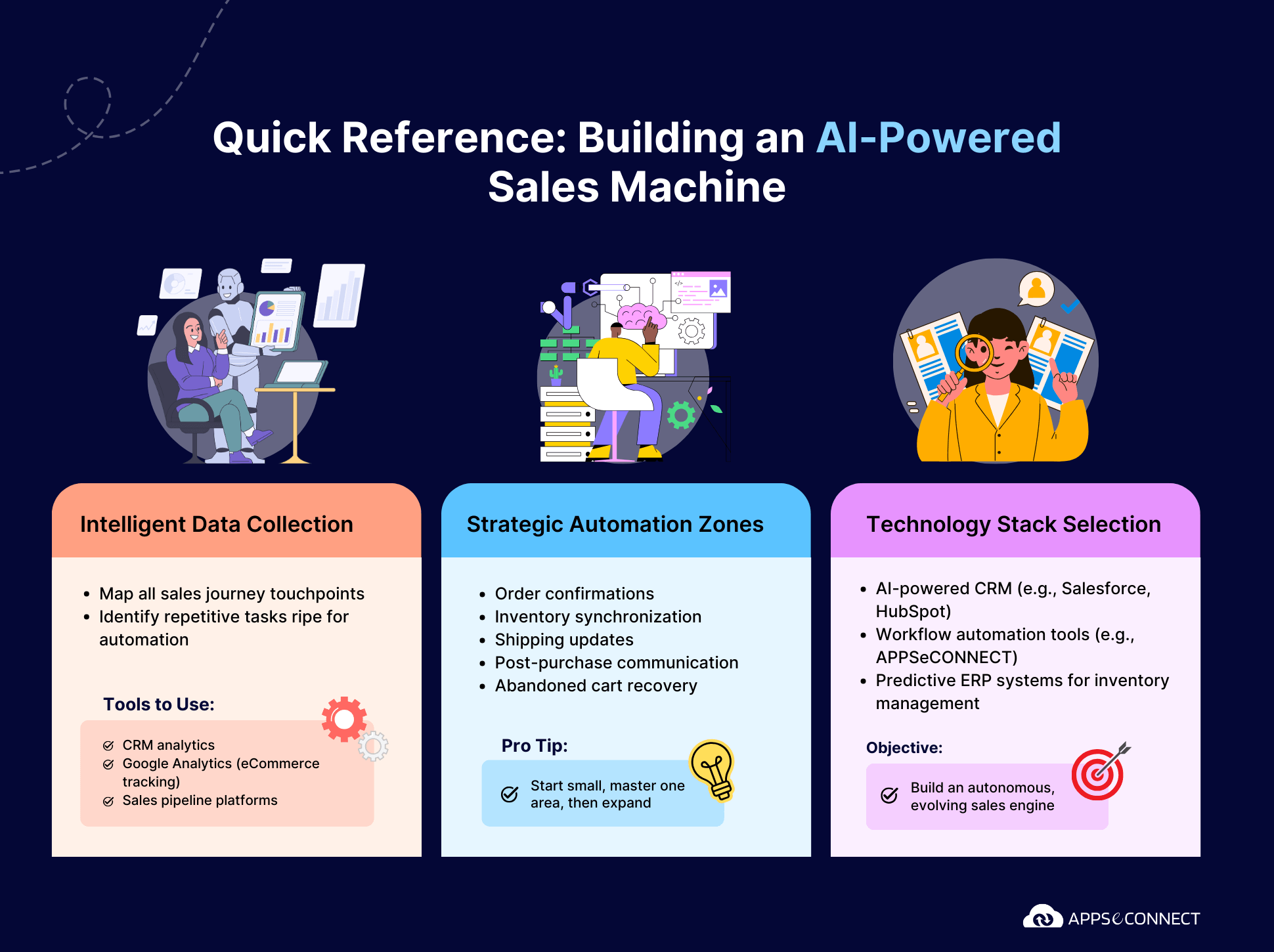
Stage 1: Intelligent Data Collection
- Before automation, you need to understand your current sales ecosystem. This means:
- Map out every single touchpoint in your sales journey
- Identify repetitive tasks that consume human hours
Use tools like:
- Your CRM’s built-in analytics
- Google Analytics enhanced eCommerce tracking
- Sales pipeline management platforms
Stage 2: Strategic Automation Zones
Not everything needs automation. Be surgical. Focus on:
- Order confirmation processes
- Inventory synchronization
- Shipping status updates
- Post-purchase communication
- Abandoned cart recovery
Pro tip: Start with one zone. Master it. Then expand.
Stage 3: Technology Stack Selection
Your automation toolkit should include:
- CRM with AI capabilities (Salesforce, HubSpot)
- iPaaS for workflow automation (APPSeCONNECT)
- AI-powered communication tools
- ERP with robust inventory management features and predictive capabilities
Which businesses benefit from Sales Automation?
Small and medium businesses (SMBs) with lean operational teams can especially benefit, as sales automation reduces the need for additional manpower while maintaining high accuracy and efficiency.
Building a Virtual Assistant Workforce
There are plenty of powerful, ready-to-use assistants in the market. There are AI-powered platforms that let you build your own custom AI assistant. The solutions are already out there; what you need is an implementation strategy.
Stage 1: Strategic Assessment
- Identify your most frequent customer queries
- Map out typical customer support journeys
- Understand where human handoff is critical
Stage 2: Solution Selection
- Off-the-shelf solutions (Zendesk, Intercom)
- Platform-specific bots (Shopify, Salesforce)
- Enterprise-grade custom solutions
Stage 3: Gradual Refinement and Fine Tuning
- Start with basic query resolution
- Progressively add complexity
- Always maintain human oversight
- Continuously train and fine-tune the AI on actual interactions
Which business benefits from deploying Virtual Assistants?
AI assistants are most ideal for businesses looking to provide 24/7 support, particularly enterprise-level eCommerce platforms managing high volumes of customer inquiries or SMBs wanting to maintain round-the-clock availability without stretching their teams.
eCommerce Integration is a Must – and Here’s Your Starter Roadmap

For eCommerce businesses using powerful ERP systems behind the scenes, integrating their ERP and online store is a must.
So how do you get started? Your integration roadmap will have three critical stages:
Stage 1: Connectivity Mapping
- Identify all your business systems
- Understand data flow points
- Detect current integration bottlenecks
- Map out where manual interventions currently happen
Stage 2: AI Integration Strategy
- Natural language workflow creation
- Automated error detection
- Self-healing integration mechanisms
- Predictive system optimization
- Cross-platform data synchronization
Stage 3: Intelligent Automation for Specific Use Cases
- Automated product listing across marketplaces
- Real-time inventory synchronization
- Intelligent order processing
- Automated sales order creation
- Cross-platform data migration
- Fraud detection during transactions
Which businesses benefit from AI-powered eCommerce integration?
Integration is essential for businesses of all sizes that rely on an ERP at the heart of their operations, surrounded by other tools like eCommerce platforms or CRMs.
- SMEs streamline tasks and reduce manual effort,
- Mid-market companies scale efficiently,
- And enterprises maintain consistency and agility across vast systems.
No matter the size, integration ensures seamless workflows and data-driven efficiency.
The Fastest Way to Integrate AI in eCommerce Operations – APPSeCONNECT
As eCommerce businesses strive to leverage AI for personalization, automation, and operational efficiency, APPSeCONNECT stands out as a trusted partner to make this transformation seamless and effective.
Our platform is designed to tackle the challenges and reap the benefits of AI-powered eCommerce, enabling your business to:
- Deliver hyper-personalized experiences through seamless system integration
- Streamline operations with intelligent automation
- Enhance customer engagement through AI-powered solutions
- Achieve seamless cross-system integration
The best part – we have pre-built connectors for all the top eCommerce platforms – Shopify, BigCommerce, WooCommerce, and Adobe Commerce (formerly Magento).
Transform Your eCommerce Operations with the Power of AI
The future of AI in eCommerce is intelligent automation, seamless integrations, and personalized customer experiences—and APPSeCONNECT is here to help you achieve it.
Whether you’re a small business looking to streamline operations or an enterprise aiming to scale efficiently, our AI-powered platform is your gateway to smoother workflows, smarter decision-making, and exceptional customer satisfaction.
Don’t let manual processes or disconnected systems hold you back. Embrace AI-driven innovation and take your eCommerce business to the next level. Contact us today or schedule a demo to experience our AI-powered solutions for eCommerce.


